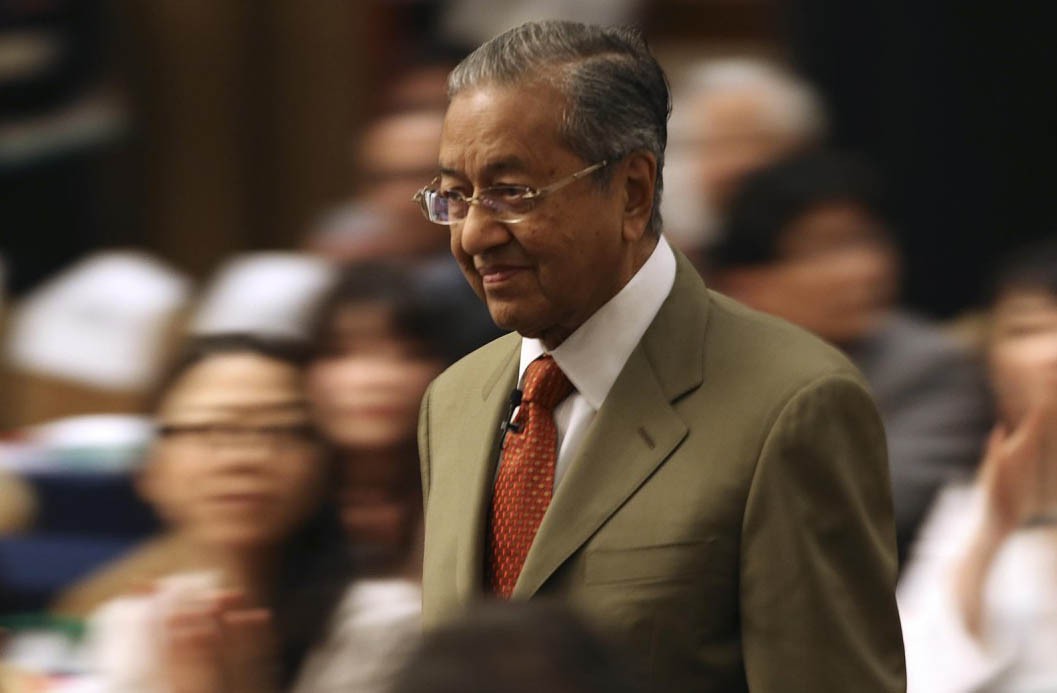
Monthly magazine South highlighted development issues and North-South dynamics in international relations and politics in the 1980s

While thinking of the state of magazine journalism in 1980s, one important international magazine of that era -- South -- stands out. Altaf Gauhar, Dawn’s former chief editor and General Ayub Khan’s information secretary, founded this monthly magazine. Agha Hasan Abedi, founder of the Bank of Credit and Commerce International, funded it. The South’s office was located in the famous New Zealand House in London’s Haymarket.
Perhaps, the idea for the monthly grew out of Altaf Gauhar’s work as editor of the Third World Weekly supplement of the Guardian newspaper.
The South was not widely available in Pakistan. A few bookshops on The Mall in Lahore stocked it. I was lucky to chance upon it in the quiet of Shahid Iftikhar Memorial Library in the Punjab University.
The library was set up by Mian Iftikhar family and served as an oasis of independent progressive research. South introduced me to development issues and the shaping role of North-South dynamics in international relations and politics. The magazine was diverse in its treatment of issues of politics, culture and developments in the countries of the South.
It was in the pages of this magazine that I was acquainted with Latin American and African writers and political and social thinkers such as Carlos Fuentes, Augusto Rosa Bastos, Paul Roberson and C.L. R. James. The first three were novelists and the last two were campaigners for racial equality, black power and civil and human rights. This expanded my small world encased in the rigidity of the Punjab University and its strangulating and oppressive hold. From what I read, I slowly came to form notions of black power, anti-colonialism and the unequal world sustained and maintained between North and South.
Latin American fiction, at that time, was quite heavy on military dictatorship-themed novels such as the Autumn of the Patriarch by Gabriel Garcia Marquez and I, the Supreme by Augusto Roa Bastos. The novels resonated with me -- for Pakistan then, like the Latin and South America, was under the jackboots of General Ziaul Haq. Some parts of these novels have stayed with me. Mohammd Hanif’s first novel, The Case of Exploding Mangoes, is in the same tradition.
As a medical student, my knowledge of international politics was rudimentary. Through the South I was exposed to heated and heady debates around the New Economic Order (NEO) and New World Order raging at the time.
South was in the forefront of the formation of the South Commission which drew membership from statesmen such as Julius Nyerere, president of Tanzania, and Dr Mahathir Mohammad, prime minister of Malaysia. Both were fervent advocates of southern hemisphere or the developing world. The South Commission pushed South’s perspective on contagious issues of debt, trade and development which are at the heart of the current unjust international order based on exploitation of the South.
Also from the pages of the South, I learnt about Patrice Lumumba, the first legally elected prime minister of the Democratic Republic of the Congo, and the US involvement in his downfall.
There was always something in the South on the role of imperialist power in backwardness and economic impoverishment in the third world.
The South also kickstarted the career of now illustrious George Aligiah, the star anchor of the BBC, and Maleeha Lodhi, who cut her journalistic teeth on the South magazine. Khalid Hasan, the veteran Pakistan journalist, was briefly on the South staff before he took up another media job in Vienna.
Judith Vidal Hall was editor of the South. Later, as editor of the Index on Censorship, I formed close friendship with her. She would recount stories of how she managed to get an interview with General Zia.
The magazine slowly faded out after the collapse of the BCCI. The last memory of the magazine was its much-reduced presence under the editorship of Mushtaq Parker who was at one time on the staff of South. Regrettably, I threw away my copies of the magazine that I once kept meticulously in a folder.
The archives offer an invaluable source of research on that period. I often think about the long-range impact of the magazine. It played a catalysing role in debates around colonialism, trade, anti-colonial consciousness and exploitation of South in the name of development, trade and environment by rich northern countries.
The spin-off of South was the South Commission which, under Dr Mahathir of Malaysia, developed coherent positions of South on development, debt and trade issues. Largely shaped by the South Commission experience, Dr Mahathir became a vocal spokesman for countries of the South on the world stage. Resurgence, a magazine under Muzaffar Chandra, published from Malaysia, was maybe inspired by the South.
Another long term and direct offshoot of the South was the Third World Quarterly Journal now edited by Irfan Qadir. The journal has continued the trend augured by South by addressing issues of debt, trade and development and disparities between North and South and their economic roots.
Altaf Gauhar also instituted annual Manzoor Qadir memorial lecture from the platform of either the South or the Third World Quarterly. I attended one lecture in Lahore delivered by late Michael Manley, prime minister of Jamaica. The lecture dealt with debt, development and finance institutions, such as the World Bank and IMF, about whom Manley knew from his direct experience of negotiating better terms for Jamaica with not much success. He was punished for his bold stand and forced out when he refused to implement the structural adjustment programme attached with far-reaching conditionalities. If there was one figure, apart from Dr Mahathir, who fitted the South leadership role on these vital issues, it was Michael Manley.
The contribution of South in bolstering leaders like Manley was enormous.